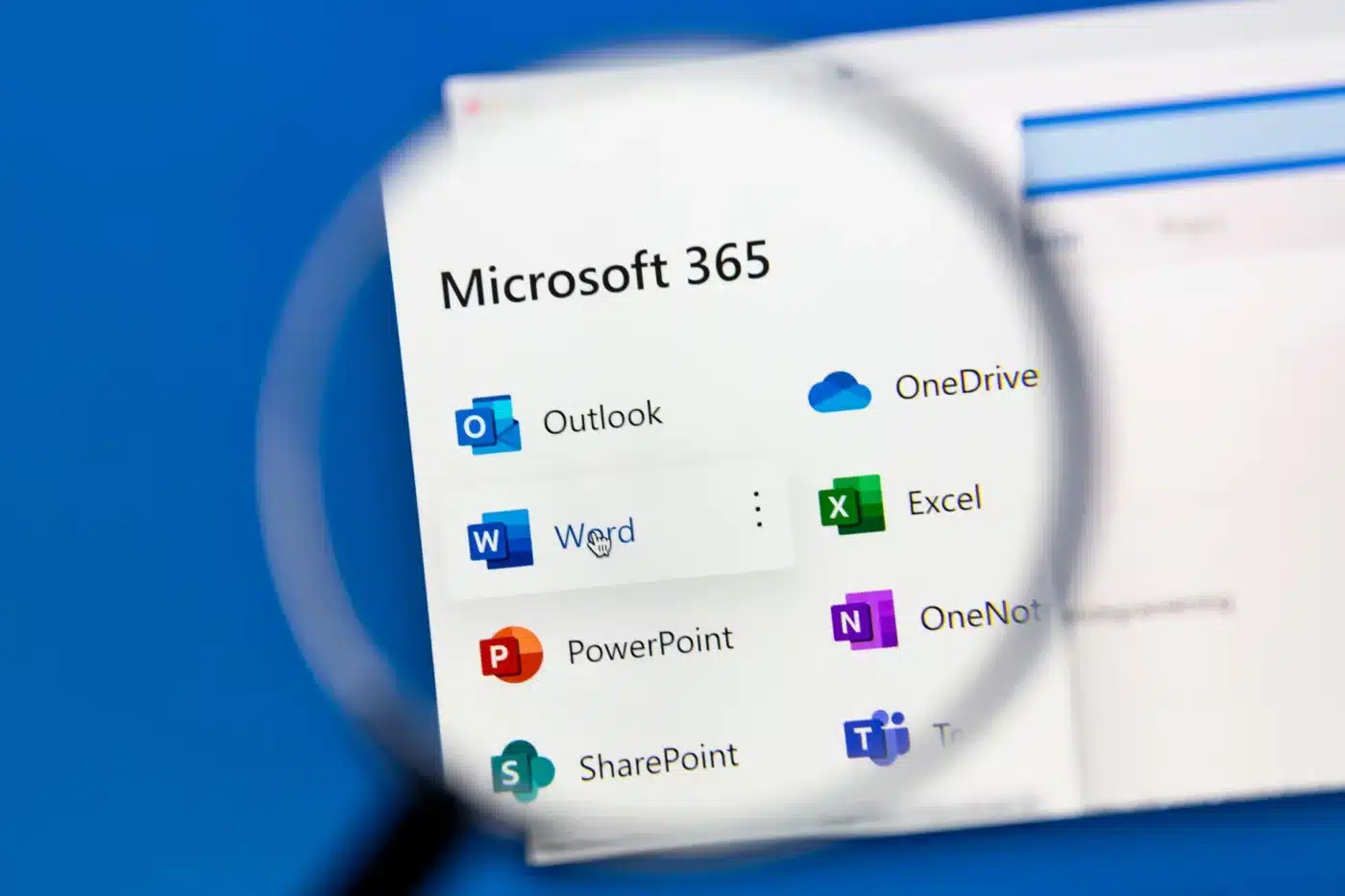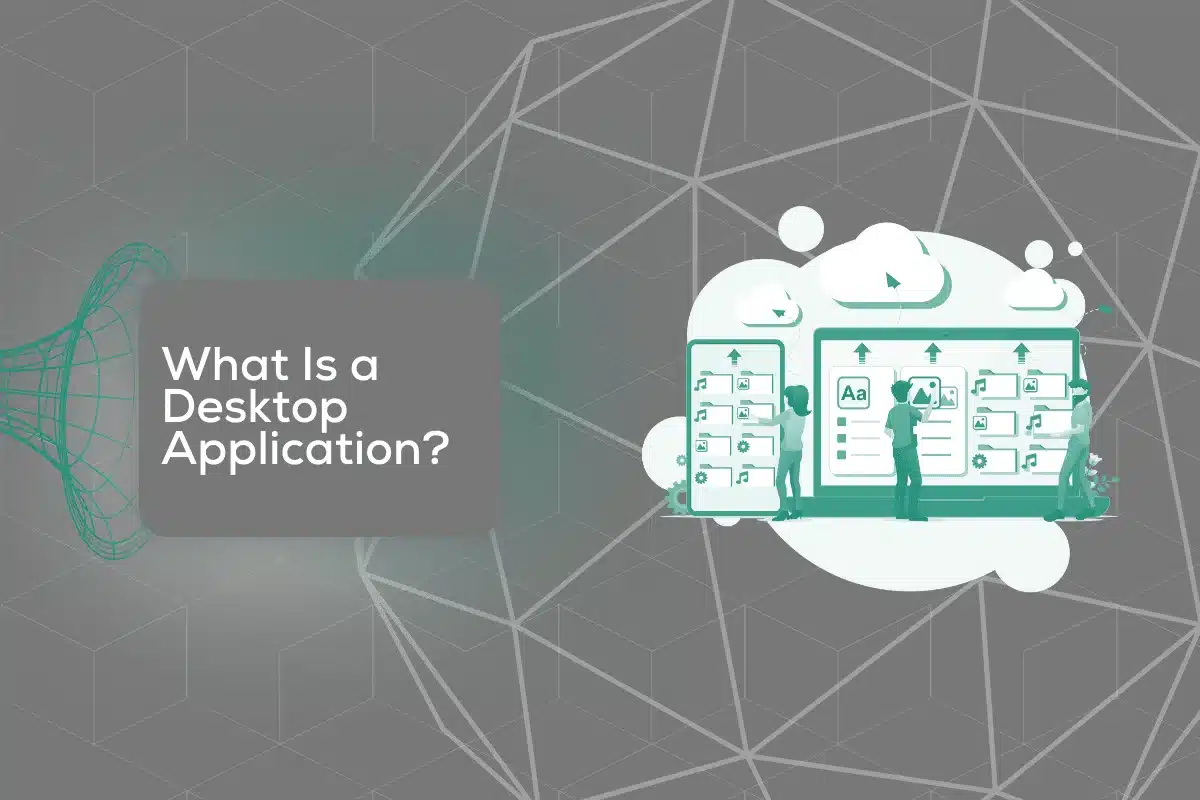In today’s digital landscape, it’s not uncommon to hear about a wide array of software solutions like desktop applications, but what is a desktop application? These often underappreciated pieces of software play a pivotal role in our daily lives, whether we realize it or not. In this brief exploration, we’ll unravel the essence of desktop applications, their distinct characteristics, and how they differ from other software solutions in the ever-evolving landscape of technology.
A desktop application is software designed to run on a user’s computer or device, functioning independently from web browsers. It provides offline access and high performance, making it ideal for resource-intensive tasks like video editing, 3D rendering, or handling sensitive data, such as financial software.
What Is a Desktop Application?
A desktop application, often referred to as a standalone, is software designed to run on a user’s computer or device. Unlike web or mobile applications, these are installed locally and operate independently from a web browser.
Rapid prototyping software development techniques have revolutionized the creation of desktop applications, enabling developers to swiftly and iteratively test and refine their ideas, resulting in highly efficient and user-centric solutions.

What Are the Examples of Desktop Applications
Popular examples include Dropbox, Airbnb, Microsoft Office, and video games like Minecraft. These versatile programs offer a wide range of features and functionalities, catering to various user needs.
Should You Hire a Top-Notch Desktop Application Development Company?
Software prototyping is a must if you want to ensure that the creation of your desktop app is a resounding success. Hiring an MVP development company specializing in desktop applications brings a wealth of experience, expertise, resources, and a proven track record to the table.

How Desktop Applications Have Adapted to Changing Technologies?
The evolution of desktop apps has been marked by significant milestones that have shaped the way we interact with software. They have continuously adapted to the changing technological landscape and gained the following features:
- Compatibility – Developers work to ensure that these remain compatible with evolving operating systems and hardware, offering updates and patches to address compatibility issues.
- Security – In response to growing cybersecurity concerns, these apps have implemented robust security measures to protect user data and privacy.
- Cross-platform capabilities – Many desktop applications have evolved to support multiple operating systems, allowing access to Windows, macOS, and Linux, ensuring a broader user base.
- User experience (UX) – Modern desktop apps focus on delivering a smooth and intuitive user experience, incorporating features like touch support and gesture controls.
- Integration with social media platforms – Seamless integration with other software and services, such as social media platforms and third-party plugins, has become essential for desktop applications.
Explore the Advantages of Using Desktop Applications
Using desktop applications offers a wide range of benefits that users need to help their businesses. Here are some of the most important advantages you should consider:
- Offline functionality – Working seamlessly without an internet connection ensures productivity even in offline scenarios.
- Enhanced performance – Offering faster and more responsive performance compared to web-based counterparts results in efficient and smoother user experiences.
- Security and data privacy – As user data is stored locally on the device, prioritizing security and privacy reduces exposure to online vulnerabilities.
- Customizability – Personalizing desktop applications to suit specific needs makes them adaptable to individual preferences and requirements.
There Are Different Types of Desktop Applications Based on Their Functionality
Desktop applications come in various forms, each tailored to specific functions and purposes. They can be divided into distinct categories, such as productivity software, graphic design applications, and gaming platforms.
For example, productivity software like Microsoft Office streamlines office tasks, while graphic design tools such as Adobe Photoshop empower creative professionals. These examples are a testament to the versatility of this software category.

Desktop vs. Web and Mobile App – Check Out Their Key Characteristics
Desktop, web, and mobile apps each offer distinct user experiences. The first ones are typically installed locally on a computer or device, providing robust offline functionality and high performance. In contrast, web applications run in browsers and require an internet connection. The third type, as the name suggests, is designed for smartphones and tablets, offering mobility and touch-screen interactions.
Here’s a short overview of these three app types and when to use them.
| App type | Key characteristics | When to use |
|---|---|---|
| Desktop applications | High performance, data security, ideal for video editing, 3D rendering, and finance | Offline access is required for resource-intensive tasks, handling sensitive data |
| Web applications | Accessibility from any device with a browser, universal updates, and maintenance | Collaborative work, content sharing, e-commerce |
| Mobile applications | Leverage mobile device features like camera and GPS, ideal for social media and gaming | On-the-go tasks, GPS navigation |
The Impact of Emerging Technologies on Desktop Applications
Emerging tech like AI and AR/VR are reshaping apps. AI enhances automation and personalization, while AR/VR transforms design and simulation software for immersive experiences.
Combined with MVP software development, these technologies are reshaping apps. MVP enables the rapid testing and iteration of these cutting-edge technologies, ensuring that the most essential features are developed first and refined based on user feedback.

Juratech Solutions Offers Top-Notch Desktop Application Development Services for Your Needs
When developing desktop applications, understanding their essence, evolution, and significance is key. To embark on the journey of developing your own desktop application, whether for personal use, business, or any other purpose, partnering with experts is the solution for success.
With Juratech Solutions and our backend web development and frontend web development services, you’ll experience true innovation as we bring your desktop application vision to life. Contact us today and explore all we do and how we can help you boost your business.







